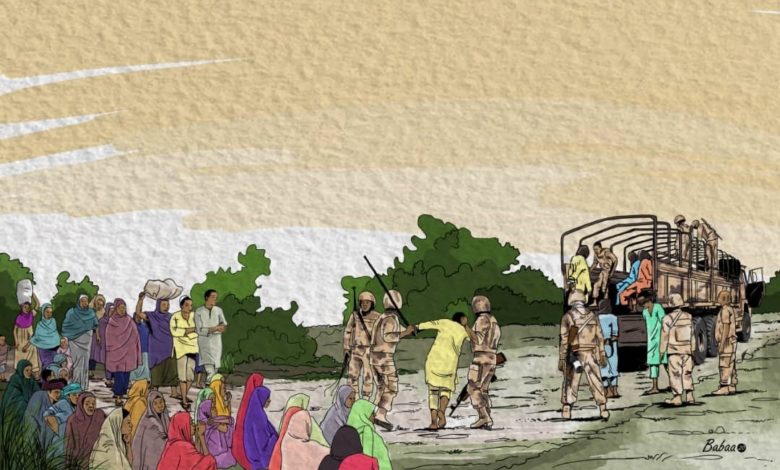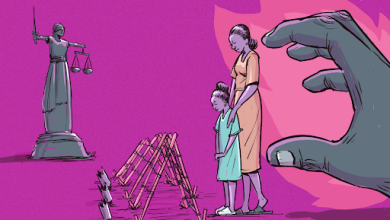‘Borno Govt Forcing Us To Resettle Without Our Husbands’ — Knifar Women Cry Out
Hundreds of the group’s members, separated from their husbands by the Nigerian military, are on the verge of being returned to their home communities. But they ask to do so only when it is safe and after reuniting with their detained husbands.

Displaced women in Borno, Northeast Nigeria, whose husbands have been in detention indefinitely and without trial for many years, fear that the state government is preparing to return them to their home communities without addressing their grievances.
Members of the Knifar Movement, a support and advocacy group formed in 2017 by hundreds of affected women, told HumAngle they are not ready to resettle unless their husbands are released, and their safety is guaranteed.
The majority of their husbands have been kept at the Giwa military barracks and Borno Maximum-Security Prison since 2015, with both facilities located in the state capital, Maiduguri.
The Knifar women are unsure if their husbands are dead or alive since they are not allowed access to the detention facilities or given updates about their spouses’ wellbeing.
Around 1:30 a.m. between Tuesday and Wednesday, June 30, Internally Displaced People (IDPs) at Dalori I camp at the outskirts of Maiduguri heard the humming of cars. Once awake, they were informed that the state governor, Babagana Zulum, had come to see them.
“Men and women were kept apart. Widows were likewise separated, and everyone received a token. Then they told everyone to get ready because a form would be presented to them to fill out,” one IDP informed HumAngle.
“However, when the forms were submitted in the morning, they confiscated the tokens from other people, including those handed to youths. Only the ones belonging to the seniors were not confiscated. We then completed the form, and they accepted it. Some speculated that it was about returning us to our homes. Others speculated that the governor wanted to do something else. However, everyone is in a quandary.”
The IDP, who would rather not be identified to avoid backlash, added that some women have been ill and many sobbed while filling the forms. They wondered why they would be sent to “unsafe locations” without their husbands even though they left their respective villages years ago with them.
“We need to be notified if we are to go because we are not yet prepared. We must also be reunited with our husbands,” she said.
“It’s not about returning to our towns; it’s about how we can be returned to a village where everyone has a husband and be left without ours. For us, life would be miserable because many of our parents and in-laws have passed away.”
HumAngle learnt that there were similar developments at the Dalori II and several other IDP camps over the week.
Knifar is part of the Jire Dole network of the families of missing persons and is hosted by the Alamin Foundation for Peace and Development (AFPD). The women believe their husbands were wrongly arrested and detained by the military, insisting that they had no ties to Boko Haram.
Since the group’s establishment, members have shared their ordeal with the National Human Rights Commission, National Assembly, and the International Criminal Court through its prosecutor. They also testified before a presidential investigative panel that was set up in August 2017 but which has yet to publish its findings.
The absence of breadwinners detained by the military has made the wives and their children vulnerable to starvation, discrimination, and gender-based violence.
The Borno state authorities have, over the past few years, relocated displaced persons back to their communities to close all IDP camps. However, some of the locations have been targeted by the terror group operating in the region and returnees complain of not having enough resources to sustain themselves. In other instances, IDPs say they are given little to no choice about where they are relocated to and express dissatisfaction about their new circumstances.
Support Our Journalism
There are millions of ordinary people affected by conflict in Africa whose stories are missing in the mainstream media. HumAngle is determined to tell those challenging and under-reported stories, hoping that the people impacted by these conflicts will find the safety and security they deserve.
To ensure that we continue to provide public service coverage, we have a small favour to ask you. We want you to be part of our journalistic endeavour by contributing a token to us.
Your donation will further promote a robust, free, and independent media.
Donate HereStay Closer To The Stories That Matter




